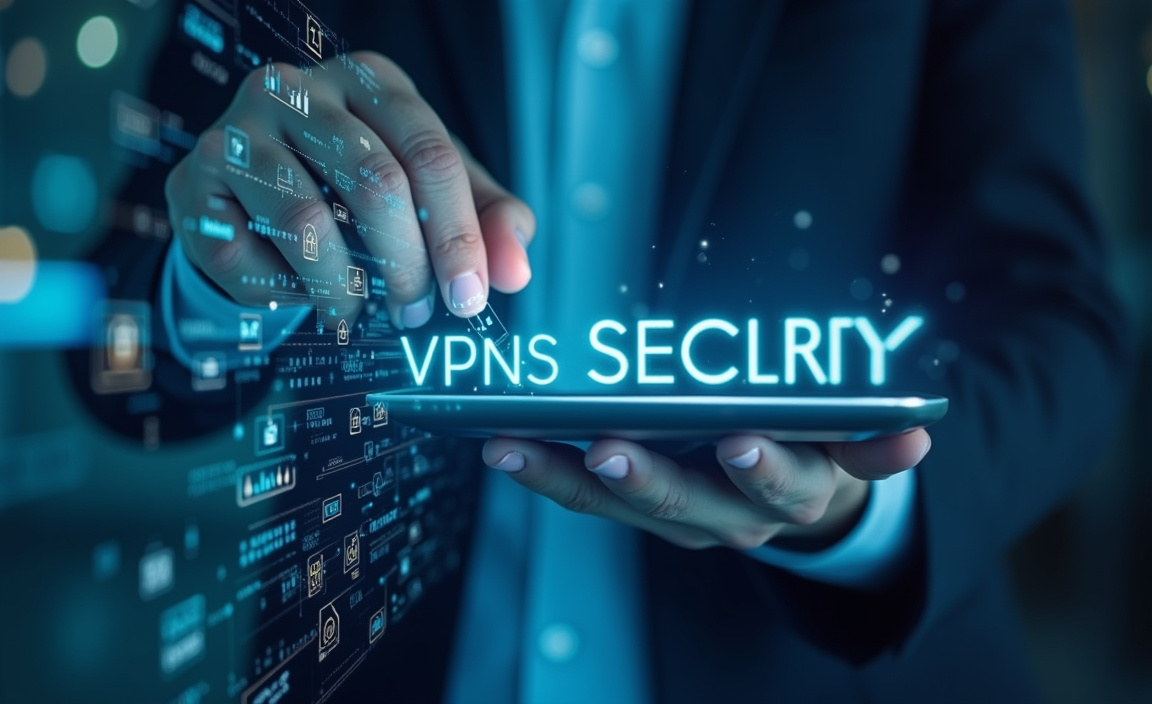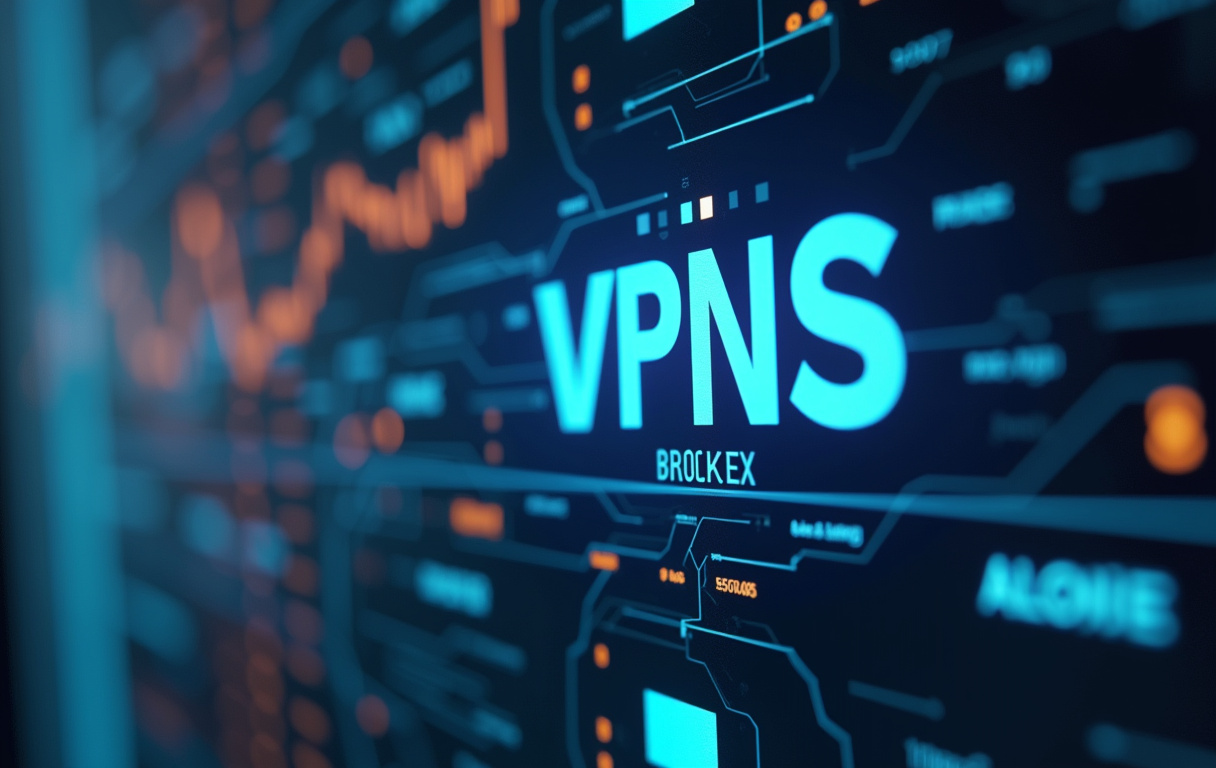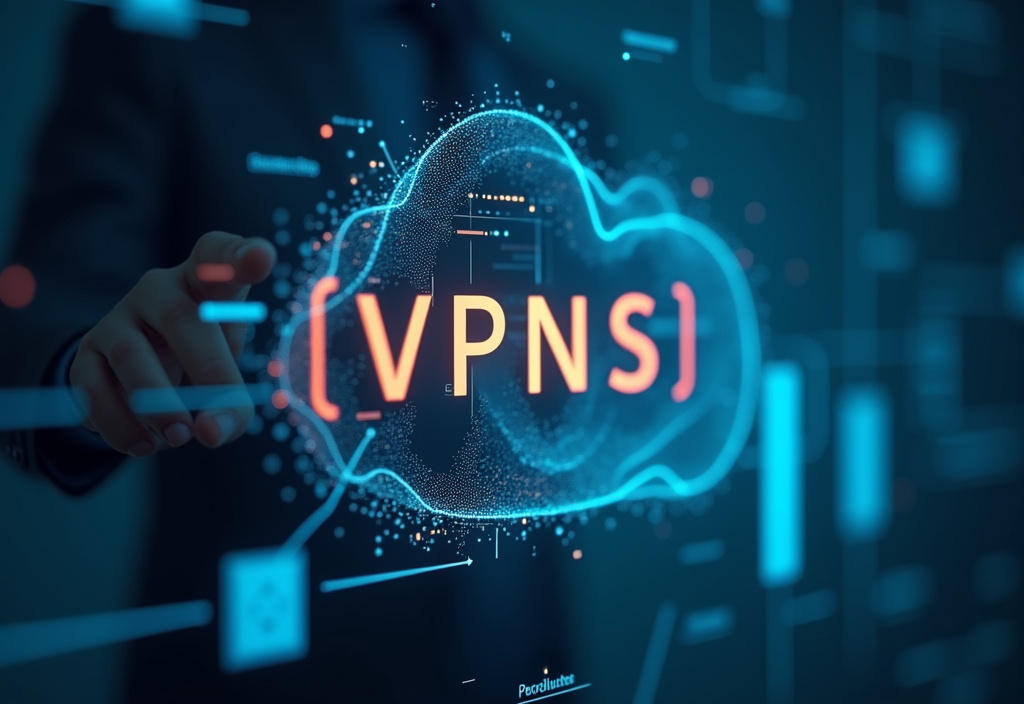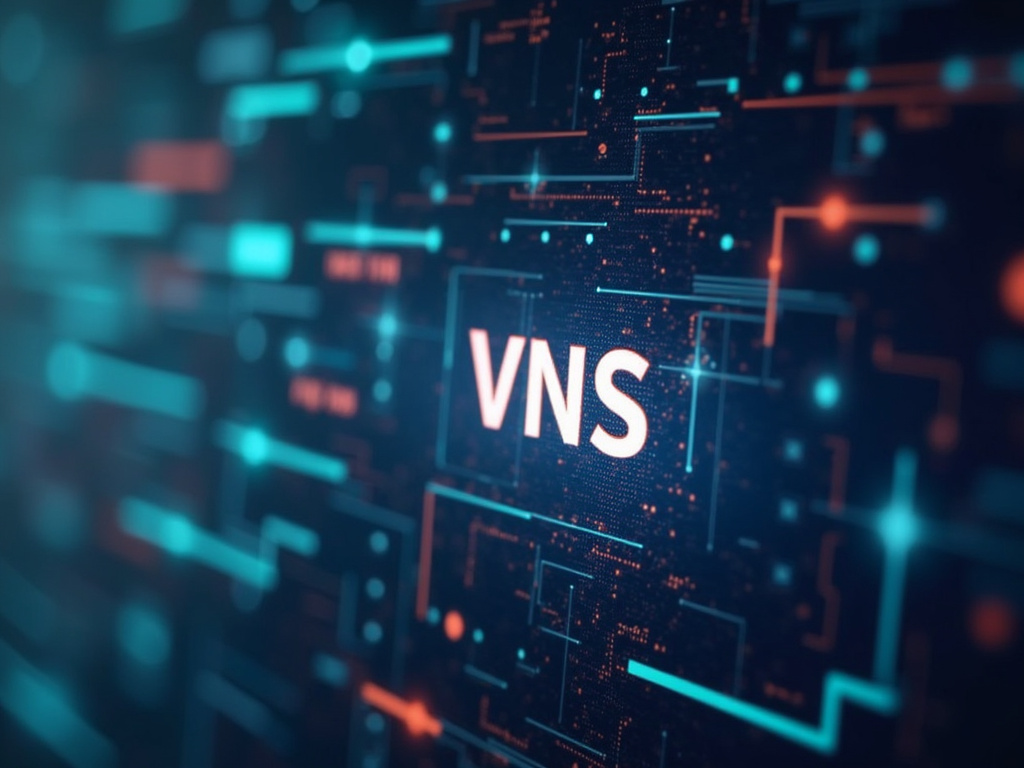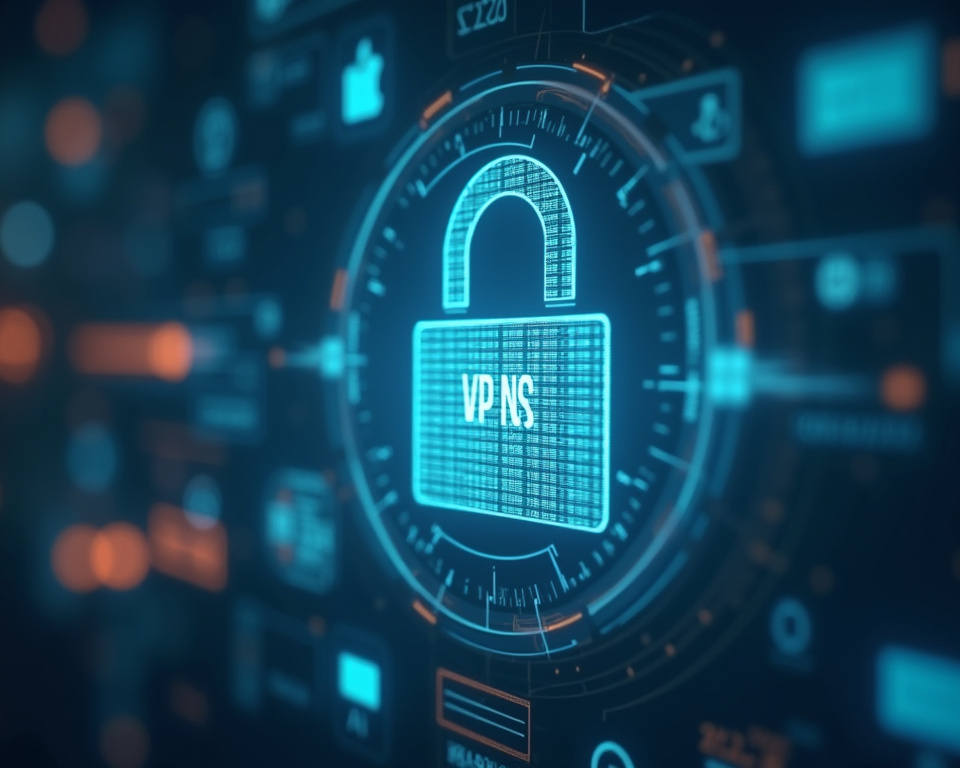VPNs for Financial Analysts: Protecting Market Insights
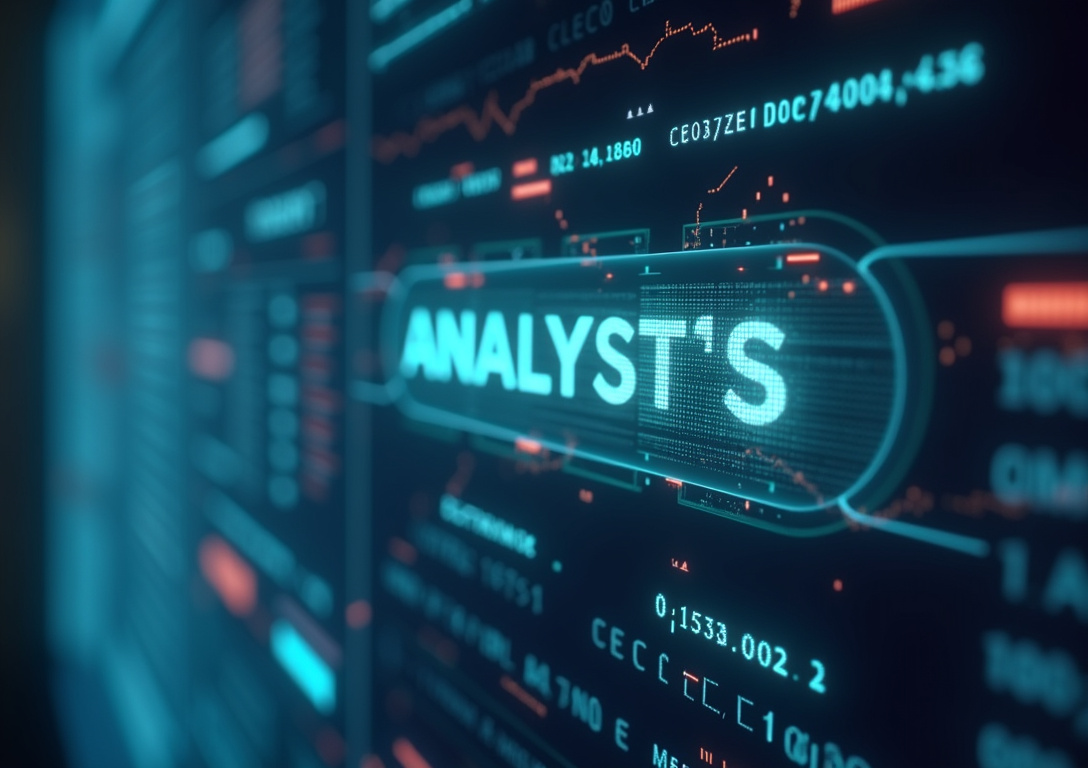
Table of Contents
In the high-stakes world of financial analysis, where fortunes can be made or lost on the slightest edge, the security of market insights is paramount. This article delves into the critical role of Virtual Private Networks (VPNs) in safeguarding sensitive financial data and protecting the interests of both analysts and investors. Financial analysts, tasked with deciphering complex market trends and providing strategic investment recommendations, operate with incredibly sensitive data.
This data, often non-public information gleaned from meticulous research, sophisticated models, and proprietary sources, holds immense value. A breach compromising this information could lead to insider trading, market manipulation, and a massive erosion of investor confidence and trust. In this interconnected digital age, simply relying on traditional security measures is no longer sufficient.
Protecting this valuable asset necessitates a multi-layered approach, and a VPN has emerged as an indispensable tool for financial analysts, offering a vital layer of protection against cyber threats and data breaches. A financial analyst VPN is not merely a convenience; it’s a fundamental component of a comprehensive security strategy, safeguarding sensitive data from prying eyes and malicious actors both external and internal to the organization. The importance of market insight security cannot be overstated.
The insights gleaned by financial analysts drive investment decisions, shaping market dynamics and influencing economic outcomes, and the consequences of their compromise can be far-reaching and devastating affecting the broader economic landscape. These insights can encompass a wide array of information, including projected earnings reports (often before their public release), impending mergers and acquisitions (potentially triggering significant market shifts), analysis of macroeconomic indicators (providing crucial signals to investors), and proprietary trading strategies (representing a firm's competitive advantage). The confidentiality of this information is critical for maintaining fair markets, ensuring investor protection, and preserving the integrity of the financial system.
A VPN directly addresses the inherent vulnerabilities of transmitting data over the internet, particularly when analysts connect to potentially unsecured public Wi-Fi networks in airports, coffee shops, or hotels, or when accessing data from remote locations outside the controlled environment of their corporate network. These scenarios present significant opportunities for eavesdropping, data interception, and man-in-the-middle attacks. When a financial analyst connects to a VPN, their internet traffic is encrypted and routed through a secure server, masking their IP address and location.
This effectively creates a secure tunnel, preventing unauthorized parties from monitoring online activities or intercepting sensitive data. The encryption transforms readable data into an unreadable format, rendering it useless to anyone without the decryption key, adding a critical extra layer of security. The principle of data privacy is a cornerstone of financial ethics and legal compliance to which all financial professionals must adhere.
Financial analysts handle vast amounts of personal and financial data belonging to clients and investors. Protecting this data from unauthorized access is not only a legal obligation mandated by regulations such as GDPR and CCPA but also a moral imperative to respect the privacy and confidentiality of individuals' financial information. Data breaches can result in severe financial penalties (often running into millions of dollars), irreparable reputational damage, and a devastating loss of client trust, potentially leading to business closure.
A VPN enhances data privacy by encrypting all internet traffic, including emails, file transfers, and browsing activity, making it virtually impossible for hackers or surveillance agencies to monitor online activities or intercept sensitive information. Furthermore, reputable VPN services adhere to strict no-logs policies (which prohibit the VPN provider itself from tracking or storing user activity), providing an additional layer of assurance that online activities remain private and anonymous. Beyond enhanced security and privacy, a VPN can also help financial analysts circumvent geographical restrictions and access market data that may be blocked or censored in certain regions.
This is particularly useful for analysts working in cross-border markets, where access to global information is crucial for making informed investment decisions. By connecting to a server in a different country, an analyst can bypass censorship and gain access to the necessary information. In conclusion, for a financial analyst, a VPN is far more than just a piece of software; it represents an essential security measure, a commitment to data privacy, and a crucial tool for protecting market insights and investor interests in an increasingly interconnected and threat-filled digital landscape.
The financial analyst VPN is an essential element for any financial entity or professional.
The core functionality of a financial analyst VPN lies in its ability to create a secure and encrypted connection for transmitting data, effectively shielding sensitive information from unauthorized access. This encryption process essentially scrambles readable data into an unreadable format, protecting it from interception and misuse during transmission. There are various encryption protocols available, each offering different levels of security and performance.
Advanced Encryption Standard (AES) is widely recognized as the industry standard due to its robust security and efficiency. AES uses a symmetric-key algorithm, meaning the same key is used for both encryption and decryption, simplifying the process while maintaining a high degree of security. With key lengths of 128-bit, 192-bit, or 256-bit, AES provides a highly robust level of security, effectively thwarting brute-force attacks and making it extremely difficult (if not practically impossible) for hackers to decipher the encrypted data within a reasonable timeframe.
A 256-bit AES encryption, in particular, is considered military-grade and is used by governments and security agencies worldwide. Beyond encryption, a VPN also plays a crucial role in masking the user's IP address, which serves as as a unique identifier for their device and geographic location on the internet. Every device connected to the internet is assigned a unique IP address, which can be used to track online activity and identify the user's location.
By routing internet traffic through a VPN server, the user's actual IP address is hidden and replaced with the IP address of the VPN server. This effectively anonymizes the user's online activity, preventing websites, advertisers, and third-party trackers from identifying their location or tracking their browsing habits. This IP masking capability provides a vital privacy layer for financial analysts.
It limits the amount of personal data that can be collected and used to target them with malicious attacks. This is particularly important for financial analysts who need to maintain their anonymity while conducting market research, gathering competitive intelligence, or accessing sensitive information from various sources. Protecting their IP also stops bad actors from identifying their specific origin, and initiating targeted phishing attempts, or network intrusions.
Investor protection is fundamentally and inextricably linked to the security of market insights which is why utilizing a financial analyst VPN matters so deeply. When market insights are compromised, or leaked whether it is due to negligence, external breaches or deliberate internal leaks it can create an uneven playing field, where those with access to privileged and non publicly available information are able to unfairly profit at the expense of ordinary investors who have the same equitable access. Insider trading, for example, is a direct consequence of compromised market insights, where individuals with non-public information use it to gain an unfair advantage in the market.
This erodes investor confidence in the financial system overall and undermines the integrity of the markets the professionals are sworn to protect. A high quality VPN like a VPN for analysts helps protect investor protection by ensuring that market insights remain confidential and secure, preventing them from falling into or into the hands of unauthorized individuals. By encrypting data and masking IP addresses, a VPN reduces the risk of data breaches and unauthorized access to sensitive information, contributing to a more transparent, fair, and equitable market for everyone.
A real world relatable example to illustrate this point involves a financial analyst working remotely from unsecured public WiFi in a coffee shop is accessing highly classified market insights to advise VIP clients. But without the protection of a VPN, the analyst's internet connection becomes the prime target of cyber attacks. A cybercriminal lurking on the same public Wi-Fi network intercepts the analyst's data transmission and gains access to both the client's personal data, plus proprietary data that if leaked could cause financial damage to the clients and damage to the analysts company along with legal penalties and loss of business.
However by simply connecting to a secure VPN, the financial analyst can protect sensitive data from unauthorized access. The strong end-to-end encryption shields all data transmission making it impossible for any cyber criminal to intercept and extract anything. Ultimately illustrating the power of a financial analyst VPN.
Selecting the right financial analyst VPN requires careful consideration of several key factors that go beyond basic functionality. Speed is a paramount concern, as financial analysts often need to access and process massive amounts of data in real-time. A noticeable lag or slow connection can significantly hinder productivity, impede research, and potentially lead to missed opportunities in fast-moving markets.
A VPN that significantly slows down internet speed can hinder productivity and make it difficult to perform essential tasks such as streaming real-time market data, participating in video conferences, and quickly uploading or downloading large financial models. Therefore, it is crucial to choose a financial analyst VPN with a robust server infrastructure and optimized protocols that minimize speed degradation. Look for VPNs that offer a wide range of server locations strategically positioned around the globe, allowing you to choose the server closest to your physical location for the fastest and most reliable connection speeds, or even a location close to where the data is being hosted.
Furthermore, consider the VPN's bandwidth limitations. Some VPN providers impose bandwidth caps, which can limit the amount of data you can transfer per month. This can be a significant problem for financial analysts who frequently download large datasets or stream real-time market data.
Always opt for a VPN provider that offers unlimited bandwidth to ensure uninterrupted access to the resources you need. Security protocols are another critical consideration when assessing a financial analyst VPN. As mentioned earlier, AES (Advanced Encryption Standard) encryption is the industry standard, and a VPN should support at least AES-128 encryption, with AES-256 being the preferred option for maximum security and protection against sophisticated cyber threats.
However, encryption alone is not sufficient. The VPN should also support secure and modern protocols such as OpenVPN, IKEv2/IPsec, and WireGuard. These protocols have been thoroughly vetted by security experts and are known for their robustness, speed, and resistance to attacks.
OpenVPN is an open-source protocol that is widely considered to be one of the most secure options available. IKEv2/IPsec is another secure protocol that is often used on mobile devices due to its stability and ability to quickly re-establish connections after interruptions. WireGuard is a newer protocol that is gaining popularity due to its speed, simplicity, and strong security.
It is also important to avoid VPNs that use older or less secure protocols, such as PPTP or L2TP/IPsec, as they may be vulnerable to known exploits and offer inadequate protection against modern cyber threats. The VPN provider's logging policy is another crucial aspect to carefully examine before making a selection. A reputable financial analyst VPN provider should have a strict no-logs policy, which means that they do not collect or store any information about your online activity, including your browsing history, IP address, connection timestamps, or data transfer volumes.
This is essential for ensuring your privacy and anonymity while using the VPN. Be wary of VPN providers that claim to have a no-logs policy but then collect usage data for other purposes. This is often buried in the fine print of their terms of service or privacy policy.
Always read these documents carefully before subscribing to a VPN service. Look for VPN providers that have undergone independent audits of their no-logs policies to verify their claims. These audits are conducted by third-party security firms that examine the VPN provider's infrastructure and policies to ensure that they are actually adhering to their no-logs policy.
A clean audit report can provide an additional layer of confidence in the VPN provider's commitment to privacy. Finally, consider the VPN's jurisdiction, which refers to the country where the VPN provider is legally based. This is important because the VPN provider may be subject to data retention laws or government surveillance requests in that jurisdiction.
Choose a VPN provider that is based in a country with strong data privacy laws and a history of protecting internet freedom. Avoid VPN providers that are based in countries known for their extensive surveillance programs or close ties to intelligence agencies.
Beyond the fundamental technical considerations of speed, security protocols, and logging policies, several other factors contribute to a VPN's suitability for financial analysts. These include the availability of specialized features, the quality of customer support, and the overall user experience. A kill switch is an essential feature for any VPN used in a security-conscious environment like financial analysis.
A kill switch automatically disconnects your internet connection if the VPN connection drops unexpectedly. This prevents your data from being exposed if the VPN malfunctions or if there is an interruption in the connection to the VPN server. Without a kill switch, your internet traffic would revert to your default connection, potentially exposing your IP address and sensitive data to eavesdropping.
Look for a VPN that offers a customizable kill switch, allowing you to specify which applications should be blocked if the VPN connection drops. This can be useful if you only want to protect certain financial applications or websites while allowing other traffic to continue uninterrupted. Split tunneling is another valuable feature that allows you to route some of your internet traffic through the VPN while other traffic is routed through your regular internet connection.
This can be useful for balancing security with performance. For example, you could use the VPN to protect your access to sensitive financial data while routing your streaming video traffic through your regular internet connection to avoid any performance slowdown. Not all VPNs offer split tunneling, so it is important to check for this feature if you think you might need it.
The number and distribution of servers is also an important consideration. A VPN with a large number of servers in many different countries will give you more flexibility in choosing a server location that is close to your geographic region or to the location of the data you are trying to access. This can improve your connection speed and reduce latency.
A wide range of servers also increases your chances of finding a server that is not overloaded, which can also improve performance. Furthermore, a diverse server network allows you to bypass geographical restrictions and access content that may be blocked in certain regions. The quality of customer support is another crucial factor, especially for financial analysts who may need assistance with setting up the VPN, troubleshooting technical issues, or understanding its features.
Look for a VPN provider that offers 24/7 customer support through multiple channels, such as live chat, email, and phone. Test the customer support before subscribing to the VPN by asking some technical questions to gauge their responsiveness and knowledge. A responsive and knowledgeable customer support team can be invaluable in resolving any issues that may arise and ensuring that you can use the VPN effectively.
The user interface and overall user experience are also important considerations. A VPN should be easy to install, configure, and use. The user interface should be intuitive and straightforward.
The VPN should also be compatible with all of your devices, including your desktop computer, laptop, smartphone, and tablet. Some VPN providers offer dedicated apps for various platforms, which can simplify the setup process and provide a more seamless user experience. Finally, consider the price of the VPN subscription.
VPN prices can vary widely, depending on the features offered, the length of the subscription, and the number of devices that can be connected simultaneously. Compare the prices of different VPN providers and choose one that offers the best value for your needs. Be wary of free VPNs, as they often come with significant limitations, such as slow speeds, limited bandwidth, and intrusive advertising.
Some free VPNs may even collect and sell your data to third parties, which defeats the purpose of using a VPN in the first place. Investing in a reliable paid VPN service is generally the best option for financial analysts who need strong security, fast speeds, and unlimited bandwidth.
Implementing and maintaining a secure VPN solution for financial analysts is an ongoing process that requires constant vigilance and proactive measures. It's not enough to simply choose a reputable financial analyst VPN and install it on your devices. You must also implement robust security policies and practices to ensure that the VPN is used effectively and that your data remains protected.
Regular security audits are essential for identifying and addressing potential vulnerabilities in your VPN configuration and security policies. These audits should be conducted by independent security experts who can thoroughly assess your system and recommend improvements. The audits should cover all aspects of your VPN setup, including the server configuration, encryption protocols, access controls, and logging policies.
Based on the findings of the audit, you should implement any necessary changes to strengthen your security posture. Employee training is another critical component of a secure VPN implementation. Financial analysts must be educated about the importance of using the financial analyst VPN properly and the risks of circumventing security measures.
They should be trained on how to connect to the VPN securely, how to identify and avoid phishing scams, and how to report suspicious activity. Regular training sessions can help to reinforce these concepts and ensure that employees are up-to-date on the latest security threats and best practices. Multi-factor authentication (MFA) provides an additional layer of security by requiring users to provide multiple forms of identification before they can access the VPN.
This can help to prevent unauthorized access even if an attacker manages to steal a user's password. MFA can be implemented using various methods, such as one-time passwords sent to a user's smartphone, biometric authentication, or security tokens. Implementing MFA can significantly reduce the risk of account compromise and data breaches.
Keeping your VPN software up-to-date is crucial for protecting against newly discovered vulnerabilities. VPN providers regularly release updates to their software to address security flaws and improve performance. You should enable automatic updates for your VPN client and server software to ensure that you are always running the latest version.
Patching vulnerabilities promptly can help to prevent attackers from exploiting known weaknesses in your system. Monitoring VPN usage and activity can help to detect suspicious behavior and identify potential security breaches. You should implement a system for logging VPN connections, monitoring data transfer volumes, and analyzing traffic patterns.
This can help you to identify unauthorized access attempts, data exfiltration, and other malicious activity. You should also review these logs regularly to look for any unusual patterns or anomalies. Setting strong passwords and practicing good password hygiene are essential for securing your VPN and your overall online accounts.
Encourage your employees to use strong, unique passwords for their VPN accounts and to avoid reusing passwords across multiple websites or services. Implement a password manager to help employees generate and store strong passwords securely. You should also enable password expiration policies to force users to change their passwords regularly.
Regularly reviewing and updating your VPN security policies is essential for adapting to evolving threats and ensuring that your VPN implementation remains effective. Your security policies should be clear, concise, and easy to understand. They should cover all aspects of VPN usage, including access controls, acceptable use policies, data security requirements, and incident response procedures.
You should also review these policies regularly to ensure that they are still relevant and effective in light of the latest security threats and best practices. By implementing these best practices, financial analysts can significantly enhance the security of their VPN connections and protect sensitive market insights from unauthorized access. VPN's can significantly reduce risks to the financial institute or professional.
Stay Updated
Get the latest VPN news, tips, and exclusive deals to your inbox.
